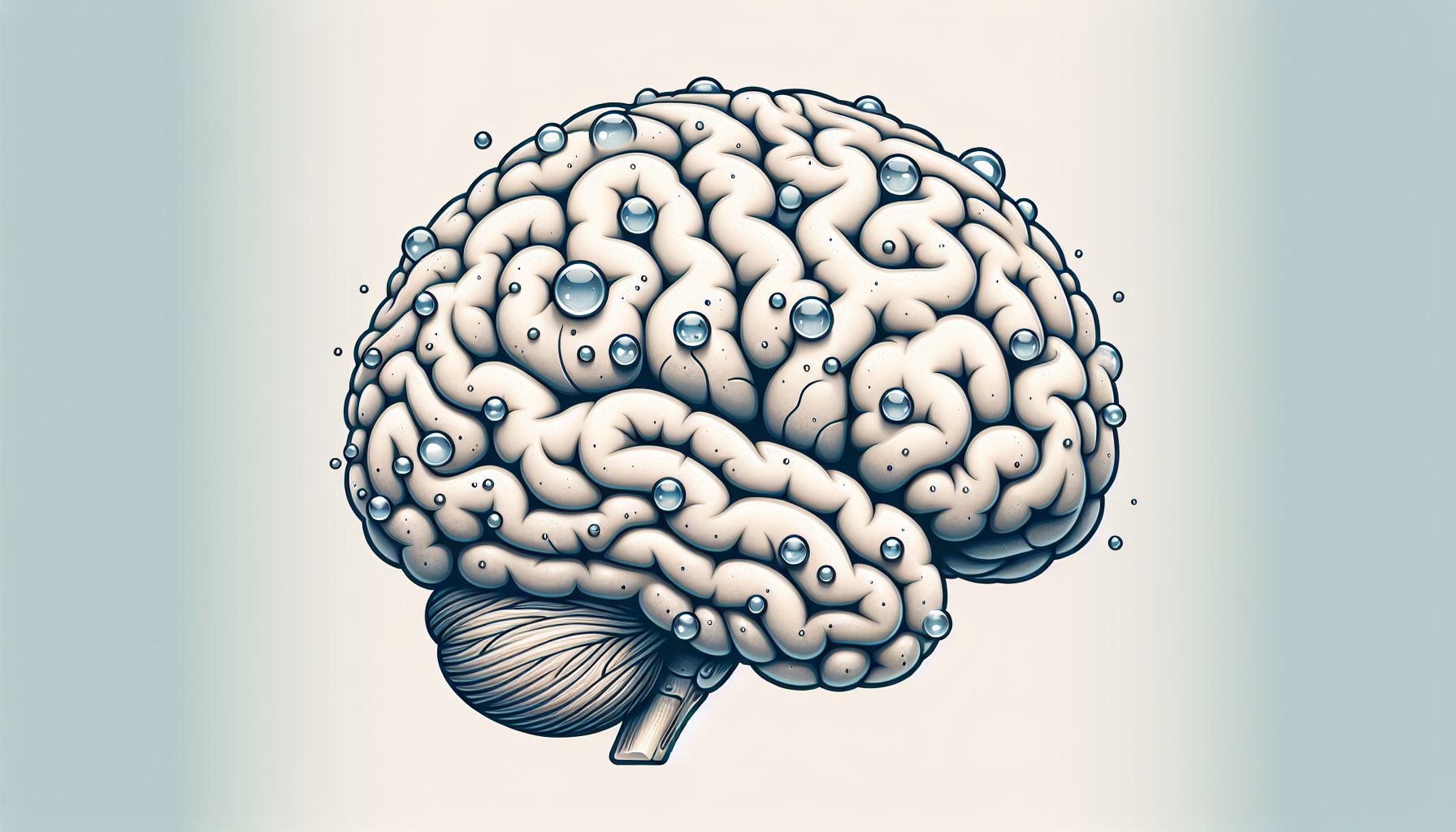Hydration is essential for maintaining overall health, and its impact on brain function is particularly profound. The human brain is approximately 75% water, and even mild dehydration can lead to cognitive impairments. Understanding the neurological benefits of hydration is crucial for promoting optimal brain health and function throughout one’s life.
The Essential Role of Water in Brain Health
Water is the cornerstone of brain health, serving as a medium for essential chemical reactions and as a means for nutrients to travel to brain cells. It is also vital for removing waste products from the brain. When we talk about brain health, we often focus on cognitive functions such as memory, attention, and the ability to process information. Hydration plays a critical role in all these areas, influencing how well our brains perform day-to-day tasks.
Cognitive Performance and Hydration
Studies have shown that even mild dehydration can impair attention, long-term and short-term memory, and executive functions. This is due to the fact that dehydration affects the brain’s energy production, which in turn impacts neuron function and the signaling processes within the brain. Maintaining adequate hydration levels helps keep cognitive performance at its peak.
An investigation into the impact of hydration on cognition revealed that adults who drink adequate amounts of water can experience improvements in their ability to complete mental tasks and maintain concentration. This research underscores the importance of regular fluid intake for mental acuity.
Mood and Hydration
The brain’s regulation of mood and emotions is also sensitive to hydration levels. Dehydration can trigger symptoms such as fatigue, anxiety, and mood swings. Consistent hydration supports the production of neurotransmitters like serotonin and dopamine, which are essential for maintaining a positive mood and emotional stability.
A study exploring the connection between water intake and mood found that individuals who increased their water consumption reported better moods and reduced anxiety compared to those who did not change their drinking habits.
The Link Between Hydration and Neurological Conditions
Hydration may influence the progression of certain neurological conditions. For example, adequate water intake has been associated with a reduced risk of stroke and can slow the progression of conditions like Alzheimer’s disease and dementia.
Preventing Stroke
Staying hydrated can help prevent blood from thickening, which reduces the risk of stroke. Thicker blood increases the likelihood of clot formation, which can block blood vessels leading to or within the brain. By ensuring proper hydration, one can maintain better cardiovascular and cardiovascular health, which is intrinsically linked to brain health.
Delaying Cognitive Decline
Hydration also plays a role in combatting age-related cognitive decline. There is evidence to suggest that regular fluid intake can help keep the brain’s structure and function intact as we age. This is particularly important for individuals at risk of or experiencing early signs of dementia.
Strategies for Staying Hydrated
Understanding the benefits of hydration is only the first step; implementing strategies to stay properly hydrated is key. Here are some tips to ensure you maintain optimal fluid levels for brain health:
- Drink water regularly throughout the day, not just when you feel thirsty.
- Include foods with high water content in your diet, such as fruits and vegetables.
- Monitor the color of your urine; it should be light yellow, indicating good hydration.
- Limit intake of diuretics like caffeine and alcohol, which can lead to increased fluid loss.
- Carry a water bottle with you to encourage sipping throughout the day.
The Role of Diet in Hydration and Brain Health
Diet plays a significant role in maintaining hydration. Consuming water-rich foods and those containing electrolytes like potassium and sodium can help retain fluid balance in the body. The neurological benefits of antioxidant-rich diets are also well-documented, as antioxidants help protect brain cells from damage caused by dehydration and other stressors.
Hydration and Brain Recovery
Recovery from brain injuries may also benefit from proper hydration. Swelling is a common response to injury, and adequate fluid intake can help manage this swelling, potentially reducing the severity of symptoms and speeding up recovery.
Supporting Brain Repair and Neurogenesis
Hydration is believed to support the processes of brain repair and neurogenesis, the creation of new neurons. Strategies to boost neurogenesis and brain repair often include maintaining proper hydration levels to support these critical functions. Water’s role in delivering nutrients and removing waste products is vital for the health of new and existing brain cells.
The Impact of Hydration on Mental Health
The relationship between hydration and mental health is gaining more attention. Dehydration can exacerbate symptoms of mental health conditions like depression and anxiety. Ensuring adequate water intake is part of a holistic approach to mental health.
Managing Stress and Anxiety
Proper hydration can help manage stress and anxiety levels. When the body is dehydrated, it may produce more cortisol, the stress hormone. By staying hydrated, one can help keep cortisol levels in check, promoting a sense of calm and well-being.
Conclusion
The neurological benefits of hydration are far-reaching, impacting cognitive function, mood, and the progression of neurological conditions. By incorporating hydration into your daily routine, you can support your brain health, enhance cognitive performance, and contribute to a more balanced emotional state. Remember, water is not just a thirst quencher—it’s a vital nutrient for the brain.
Incorporating a focus on hydration is a simple yet powerful way to promote brain health. So, fill up that glass and take a step towards a healthier, more vibrant brain.



